Search
Search Results
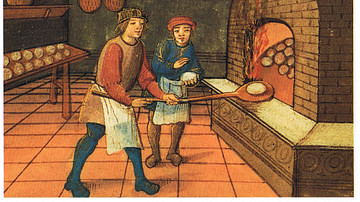
Definition
Medieval Trades
Medieval trades were essential to the daily welfare of the community and those who learned a skill through apprenticeship could make a higher and more regular income than farmers or soldiers. Professionals like millers, blacksmiths, masons...
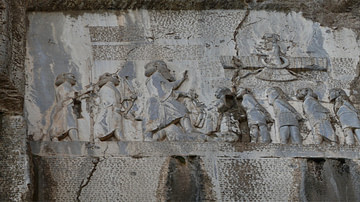
Definition
Behistun Inscription
The Behistun Inscription is a relief with accompanying text carved 330 feet (100 meters) up a cliff in Kermanshah Province, Western Iran. The work tells the story of the victory of the Persian king Darius I (the Great, r. 522-486 BCE) over...
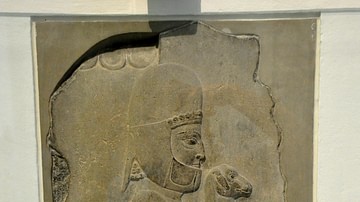
Definition
Medes
The Medes or Medians were a group of Indo-Iranian-speaking people from central Asia who migrated westwards and entered northern Iran around the end of the 2nd millennium BCE. They settled in the highlands of Zagros (Zagreus in Greek) and...
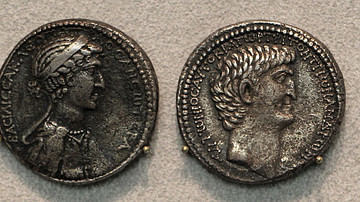
Definition
Alexander Helios
Alexander Helios (40 BCE – c. late 1st century BCE) was a member of the Ptolemaic dynasty, the second oldest son of Cleopatra VII (69 BCE – 30 BCE) and the twin brother of Cleopatra Selene II (40 BCE – 5 BCE). He spent the majority of his...
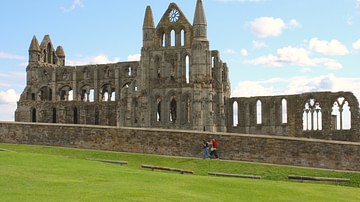
Definition
Medieval Monastery
A medieval monastery was an enclosed and sometimes remote community of monks led by an abbot who shunned worldly goods to live a simple life of prayer and devotion. Christian monasteries first developed in the 4th century in Egypt and Syria...
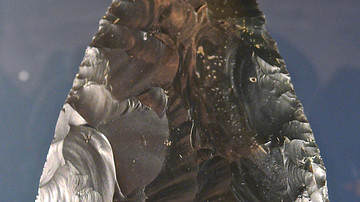
Definition
Paleolithic
The Palaeolithic ('Old Stone Age') makes up the earliest chunk of the Stone Age – the large swathe of time during which hominins used stone to make tools – and ranges from the first known tool use roughly 2,6 million years ago...
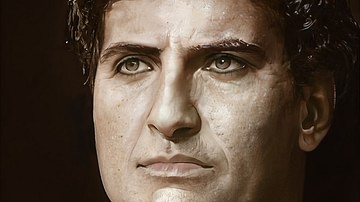
Article
Mark Antony's Parthian Campaign
In 36 BCE, Mark Antony (83-30 BCE) invaded Parthia, hoping to render himself one of the great conquerors of the Greco-Roman world, but he was stymied by Parthian forces and obliged to undertake an arduous, costly retreat. What to make of...
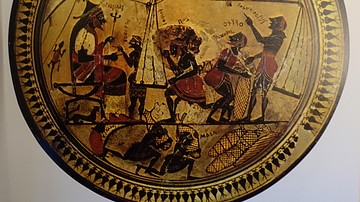
Article
Theophrastus and Pliny the Elder on Silphium
The silphium plant of Cyrene, valued as a seasoning, aromatic, and for its medicinal properties, is referenced by several notable ancient writers, but two of the best-known descriptions come from Theophrastus (l. c. 371 to c. 287 BCE) and...
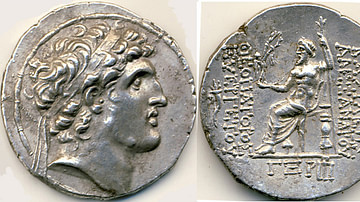
Article
Alexandros I Balas
Alexandros I Balas was a Seleucid king from 152 BC to 145 BCE. As the Seleucid king Demetrius I Soter (162-150 BCE) became more and more unpopular due to his arrogance and drunkenness, it was quite an easy task for the rival kingdoms, such...
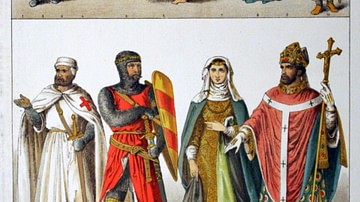
Article
Clothes in Medieval England
As in just about any other period of history, clothing in the Middle Ages was worn for necessity, comfort, and display. Bright colours and rich decorations made for a striking medieval wardrobe, at least among the wealthy, although there...